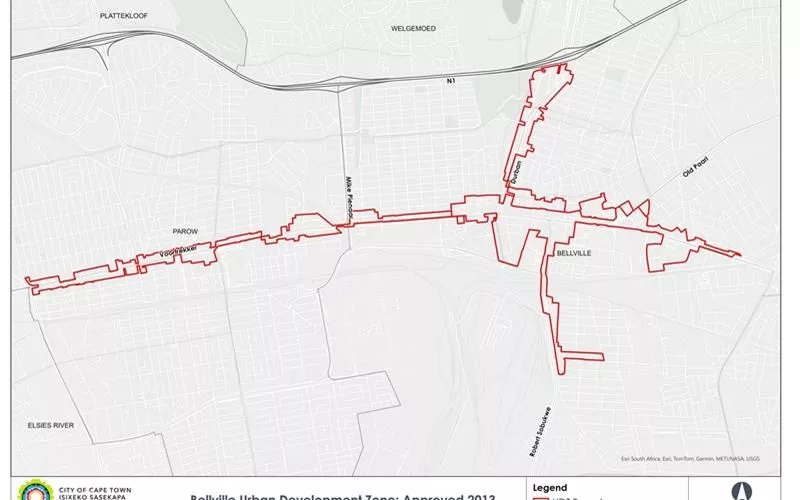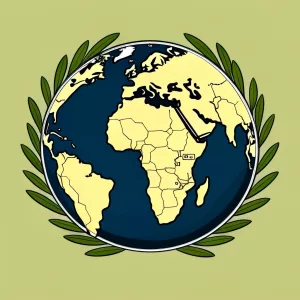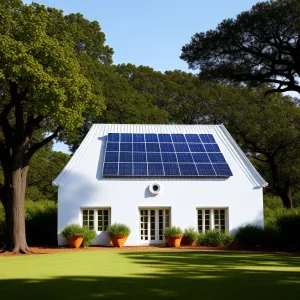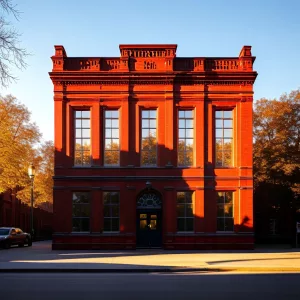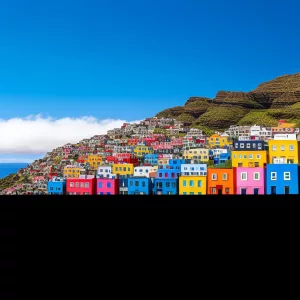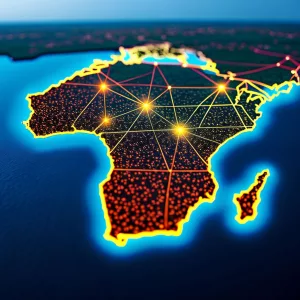Cape Town’s Urban Development Zone (UDZ) is a clever tax program that encourages people and companies to fix up old buildings and build new ones in certain parts of the city. By offering big tax breaks, it attracts private investors who bring new jobs, homes, and businesses, making neighborhoods lively and safe again. Walking downtown, you can see shiny new buildings standing proudly beside beautifully restored old ones, all thanks to this smart partnership between the city and developers. The UDZ has helped Cape Town grow stronger, turning quiet, rundown streets into buzzing centers full of life and opportunity.
Charting a New Path for NSFAS: Leadership, Reform, and the Drive for Educational Access
NSFAS helps South African students get money for college, especially those who can’t afford it. New leaders, like Dr. Karen Stander, are fixing past problems by being open, honest, and working closely with others. They are using technology to make things faster and easier, and changing rules to support more students fairly. Even though money is tight, NSFAS is finding ways to help more learners stay in school. Their goal is simple: make education possible for everyone who deserves it.
Truth, Spectacle, and Scandal: The Real-Life Saga of Thabo Bester and Nandipha Magudumana
Thabo Bester, a dangerous criminal, and Nandipha Magudumana, once a respected doctor, shocked South Africa with a wild story of prison escape, love, and crime. Their secret connection turned into a public frenzy, captured in gripping documentaries that blend real facts with dramatic storytelling. As courts battle over privacy and truth, the nation watches closely, caught between wanting to know the whole story and respecting personal rights. Their story is like a reallife thriller that asks big questions about justice, media, and who controls the truth.
Doggy High Tea at Cape Town’s President Hotel is a special afternoon where dogs and their owners enjoy fancy treats together by the beautiful poolside. Both humans and pups feast on tasty, carefully made menus while relaxing in a sunny, green oasis. The event brings people and pets closer, creating happy moments filled with laughter, play, and new friendships. It’s a fun, warm celebration of the strong bond between dogs and their families in a stylish and welcoming setting.
Cyril Ramaphosa’s Diplomatic Gambit: South Africa’s Voice in Europe’s Hour of Crisis
South African President Cyril Ramaphosa is stepping up as a calm and wise voice in the tense RussiaUkraine conflict. Using lessons from South Africa’s own journey from division to peace, he encourages open talks between Russia, Ukraine, and world leaders. His thoughtful, empathetic style helps build bridges when others choose sides. Ramaphosa’s efforts show that even in a fractured world, honest conversation can open paths to peace. This new role shines a hopeful light on South Africa’s place in global diplomacy.
The BELA Act is a new South African law aiming to make schools fairer by changing how kids get admitted, what languages are used, and making Grade R (kindergarten) compulsory for all. It tries to fix old unfair rules from the apartheid era and help more children have a safe, good start in school. But putting these changes into practice is hard there are problems with rules, resources, and safety in schools. Still, the BELA Act holds hope for a future where every child can learn and grow in a welcoming, equal place.
Navigating Inflation: South Africa’s Struggle and Resilience in the Face of Rising Costs
South Africa is feeling the pinch as prices for food like meat and vegetables, as well as water and electricity, keep rising fast. Families face harder choices every day, trying to stretch their budgets while still putting meals on the table. Yet, despite these challenges, people show great strength and creativity finding new ways to cook, share resources, and save money. Even with tough times, South Africans keep pushing forward, proving their resilience and hope in the face of rising costs.
Minister Mmamoloko Kubayi envisions a future for South Africa’s National Prosecuting Authority (NPA) built on honesty, technology, and care for victims. She calls for stronger teamwork, fighting new types of crime, and giving women equal chances within the system. Kubayi wants the NPA to be a place where talented people grow, where justice moves faster, and where victims are treated with kindness and respect. Her vision is bold: a justice system that is fair, modern, and ready to face tomorrow’s challenges.
The South African Astronomical Observatory Visitor Centre in Cape Town is a lively place where history, science, and culture come together. Visitors can explore handson exhibits, look through historic telescopes, and hear stories from South Africa’s indigenous peoples about the stars. This centre makes astronomy fun and easy to understand for everyone, inspiring young minds and celebrating the country’s rich connection to the night sky. It’s a bright hub that invites all to share in the wonder of the universe.
Steenhuis: Cape Dutch Elegance, Modern Sustainability, and the New Luxury in Upper Constantia
Steenhuis in Upper Constantia is a beautiful home that mixes old Cape Dutch style with smart, ecofriendly living. It has solar panels, rainwater harvesting, and organic gardens, making luxury and nature work together perfectly. Surrounded by tall oaks and vineyards, the estate feels peaceful and rooted in history, yet embraces modern technology to protect the environment. With spaces for relaxing and growing food, Steenhuis shows how luxury today means caring for the planet while enjoying elegant comfort. It’s a bright example of how tradition and green living can live side by side.
The Sea Point Fire Station in Cape Town, built in 1932, is a beloved historic building that has protected the community for decades. Recently, a careful R7.8 million restoration repaired its worn bricks, windows, and roof, blending old charm with modern safety upgrades. This project not only keeps the fire station strong and ready for emergencies but also honors the city’s rich history. Now refreshed, the station stands proudly as a symbol of hope, heritage, and community spirit, ready to serve Cape Town for many more years.
Siba Mtongana is a lively South African chef who brings new life to African food by mixing old, rich flavors with fresh, modern ideas. She shares her love for cooking through TV shows, restaurants, and books, making gourmet meals easy and exciting for everyone. Beyond cooking, Siba helps young chefs grow and celebrates African culture with pride. Her journey reminds us that food is more than taste it’s a way to tell stories, connect people, and inspire the world.
Literary Vibrance in the Mother City: Anticipating Cape Town’s 2025 Open Book Festival
The 2025 Open Book Festival in Cape Town is a lively, threeday celebration of African writing, bringing together famous and new authors to share stories about identity, mental health, and social change. The city buzzes with excitement as readers and writers gather to connect, explore bold ideas, and spark deep conversations. With poetry, talks, and performances, the festival shines a bright light on South Africa’s rich literary spirit while welcoming voices from across the continent and beyond. It’s a joyful, creative space where stories inspire hope, healing, and community.
Charting a New Path: Minister Thembi Simelane Injects Vision and Leadership into South Africa’s Human Settlements
Minister Thembi Simelane brings fresh energy and clear vision to South Africa’s Human Settlements, focusing on honest leadership, strong teamwork, and smart innovation. She aims to build fair, safe, and lasting communities that help fight poverty and inequality. By cutting costs, embracing new technology, and pushing for real change in who benefits from housing opportunities, Simelane wants to transform the housing sector into one that works well for everyone. Her leadership shines with hope and determination to turn the dream of decent homes into reality for many South Africans.
Reimagining Local Government: Minister Velenkosini Hlabisa’s White Paper Consultative Odyssey
Minister Velenkosini Hlabisa’s White Paper review aims to reshape local government in South Africa by making leadership more skilled and ethical, fixing how municipalities get their money, and boosting local economies. It also focuses on protecting communities from climate risks and giving youth, women, and traditional leaders stronger roles. By talking with many people across the country, the review seeks fresh ideas to help towns and cities better serve their people. This bold plan hopes to build local governments that bring real hope, growth, and fairness to all.
Energizing Change: The South Africa-Germany Partnership for a Just Energy Transition
The South AfricaGermany partnership is a powerful effort to help South Africa move from coal toward clean, fair energy. With a €500 million loan, they are working to build better energy systems that protect the environment and create new jobs. This plan focuses not just on technology, but also on making sure communities and workers affected by change are supported. Together, they aim to build a future where energy is cleaner, growth is fair, and old inequalities are healed. It’s a hopeful story of two countries teaming up for a brighter, greener tomorrow.

